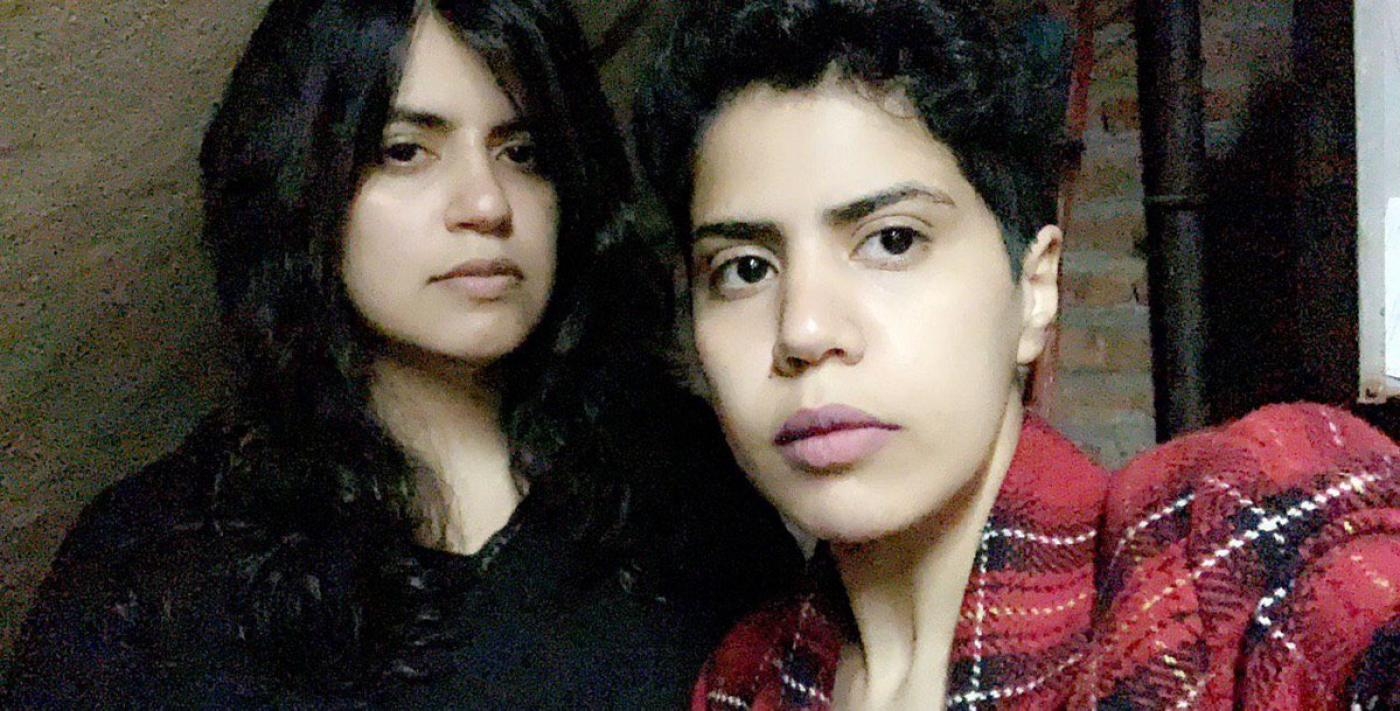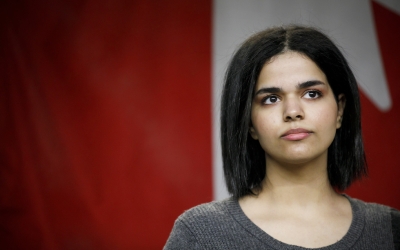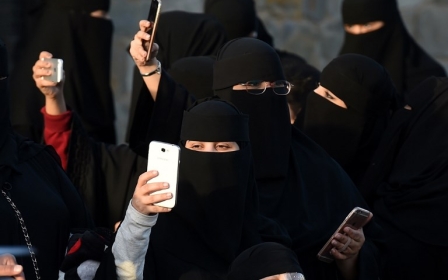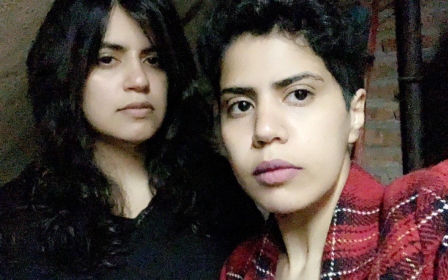Pull 'inhuman' women-monitoring app, runaway Saudi sisters tell tech giants

Two runaway Saudi sisters have urged Apple and Google to pull an "inhuman" app that allows men to monitor and control female relatives' travel as it has helped to trap girls and women in abusive families.
Maha and Wafa al-Subaie, who are seeking asylum in Georgia after fleeing their family, said on Wednesday that Absher, a Saudi government e-services app, was bad for women as it supported the kingdom's strict male guardian system.
New MEE newsletter: Jerusalem Dispatch
Sign up to get the latest insights and analysis on Israel-Palestine, alongside Turkey Unpacked and other MEE newsletters
"It gives men control over women," said Wafa, 25. "They have to remove it," she added, referring to Google and Apple.
Absher, which is available in the Saudi version of Google and Apple online stores, allows men to update or withdraw permissions for female relatives to travel abroad and to get SMS updates if their passports are used, according to researchers.
Neither company was immediately available to comment.
Apple chief executive Tim Cook said in February that he had not heard of Absher but pledged to "take a look at it".
'Hugely invasive powers'
A free tool created by the interior ministry, Absher allows Saudis to access a wide range of government services, such as renewing passports, making appointments and viewing traffic violations.
Saudi women must have permission from a male relative to work, marry and travel under the conservative kingdom's guardianship system, which has faced scrutiny following recent cases of Saudi women seeking refuge overseas.
The Subaie sisters, who stole their father's phone to get themselves passports and authorisation to fly to Istanbul, said they knew of dozens of other young women who were looking to escape abusive families.
The two women fled their country and appealed for international protection earlier this month, saying their lives would be at risk if they were to return to the conservative kingdom
Technology giants could help bring about change in Saudi Arabia if they pulled Absher or insisted that it allows women to organise travel independently, which would significantly hamper the guardianship system, they said.
"If [they] remove this application, maybe the government will do something," Wafa told the Thomson Reuters Foundation in an interview.
The sisters' plea added to growing calls from rights groups, diplomats and US and European politicians for the app to be removed from online stores.
United Nations human rights chief Michelle Bachelet said on Wednesday that she had asked technology companies in Silicon Valley "tough questions" this month about the "threats" posed by apps like Absher.
"Technology can, and should, be all about progress," she said in a statement.
"But the hugely invasive powers that are being unleashed may do incalculable damage if there are not sufficient checks in place to respect human rights."
Global attention
Western criticism of Saudi Arabia has sharpened with the trial of 11 women activists who said last month that they had been tortured while in detention on charges related to human rights work and contacts with foreign journalists and diplomats.
The public prosecutor has denied the torture allegations and said the women had been arrested on suspicion of harming Saudi interests and offering support to hostile elements abroad.
In January, 18-year-old Rahaf al-Qunun was granted asylum in Canada after becoming stranded in Thailand while trying to escape her family.
Her case made headlines after she posted video and pictures on Twitter from a hotel room in Bangkok where she had barricaded herself in to prevent being returned to Saudi Arabia.
Two other Saudi sisters who hid in Hong Kong for six months were granted visas in March to travel to a third country.
"Increasing cases of women fleeing the country are indicative of the situation of women in Saudi Arabia," said Lynn Maalouf, Middle East research director for rights group Amnesty International.
"Despite some limited reforms, [they] are inadequately protected against domestic violence and abuse and, more generally, are discriminated against."
Middle East Eye delivers independent and unrivalled coverage and analysis of the Middle East, North Africa and beyond. To learn more about republishing this content and the associated fees, please fill out this form. More about MEE can be found here.






